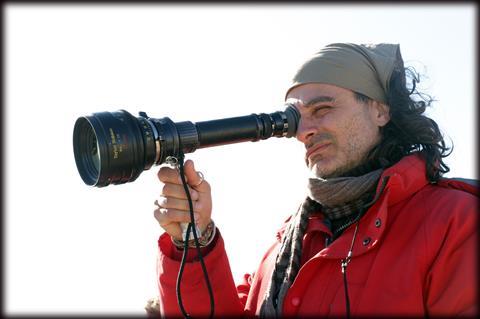Ziad Doueiri’s The Attack, a drama about a Palestinian surgeon in Israel who discovers secrets about his wife in the wake of a suicide bombing, impressed the critics when it launched in Telluride and Toronto last year.

Earlier this year the drama was banned in Doueiri’s native country Lebanon. It opens on Jun 21 in the US through Cohen Media Group. Doueiri talks to Michael Rosenkrantz about binging on Israeli cinema, working with Quentin Tarantino and what he plans to do about the Lebanese ban.
What was your filmmaking career like before The Attack?
Ziad Doueiri I came to the United States and went to San Diego State University. After I graduated, I was looking for work and eventually became a technician on a Roger Corman film. That’s really how it always starts, to be completely honest. You have to start small and grow, really building up your contacts. It’s very important in the American film industry. That’s how I got my first job.
Before you began directing, you worked on a few films with Quentin Tarantino. What was that like?
It was all about craftsmanship. He has such an energy and a charisma with actors. He carries a very special energy that really affects everyone that happens to be working that day. I was really a technician when I did that film, but he is so dedicated to the craft that it made for a great and memorable experience.
In leading up to directing The Attack, when did you decide to direct?
After Jackie Brown. I was tired of being a technician and wanted to express myself more creatively. I was very lucky that I did a film called West Beirut, which ultimately went to Cannes. It was basically my first start as a filmmaker.
When did The Attack first come together?
The Attack really came from the Doha Film Institute. They wanted to make films that came from the Middle East. They really wanted to bring in Middle Eastern filmmakers and they ended up financing the film. They had a rather strong desire to see the film made.
How did you cast the film? What was it like working the actors?
I hired a casting director in Tel Aviv and started watching every Israeli film I could. I did not have anyone in mind when writing, which was terrific because I met Ali [Suliman] and he was so talented. I recognised immediately that he was the one for the role [of the surgeon, Amin.]
How hard was it to adapt Yasmina Khadra’s novel to screen?
The film takes a little bit of a clearer stance than the book did. The ending in the novel is definitely more ambiguous. I wanted to change the ending because it was about something – both sides of the political conflict make [Amin] a truly homeless man, culturally. He pays an even heavier emotional price than in the novel, though not necessarily the same physical price. I felt I needed to change that aspect.
The editing was quite striking. How did you plan the editing of the film?
Everything in the film is planned and intentional. When Amin collapses in the middle of the film, that’s planned. Everything was really in the script. In the novel, the story is narrated by the main character but in the film I had to find a way into the main character’s mind without distracting from the story. You are truly inside his head in some of the scenes.
You said you plan to contest the ban from the Lebanese government. What is the next step?
You’re right. I do plan to contest the ban. I understand that it is a very tough film to watch, but this is film ultimately about marriage and betrayal. It’s not meant to be as political as they are making it out to be. The next step is to try and see if the law will actually stick but I do believe it to be wrong as it’s hurting the film.

























No comments yet